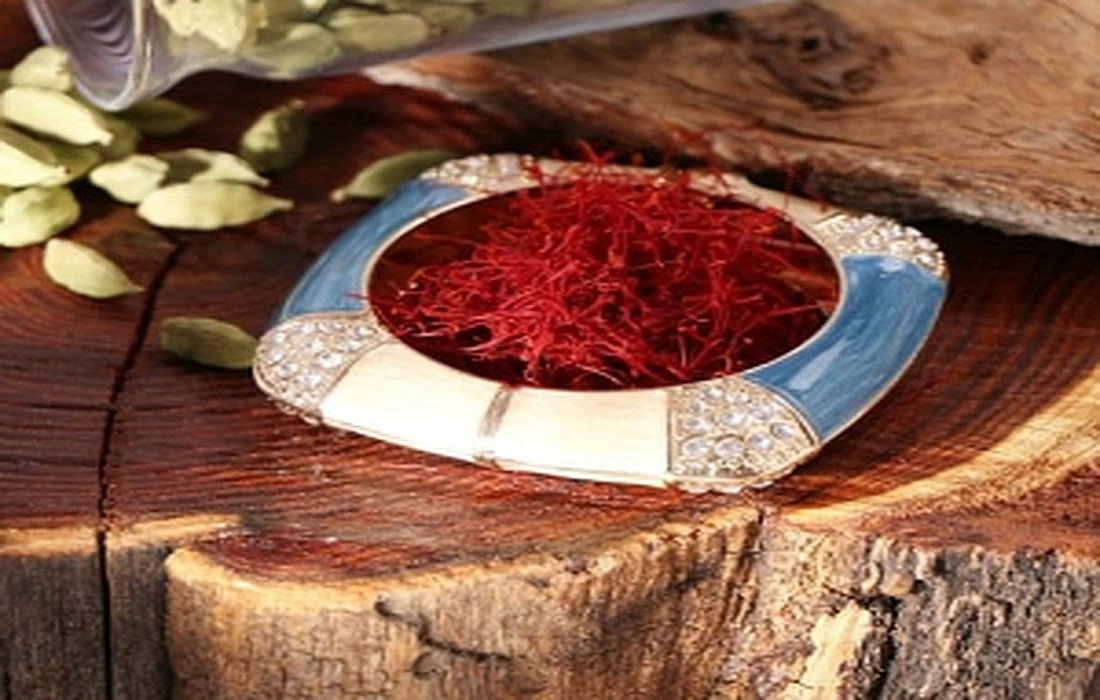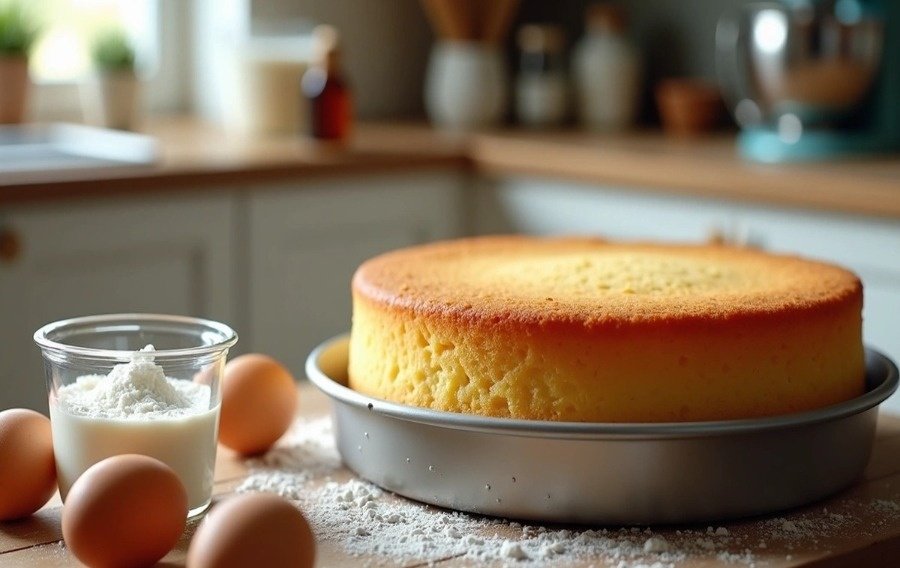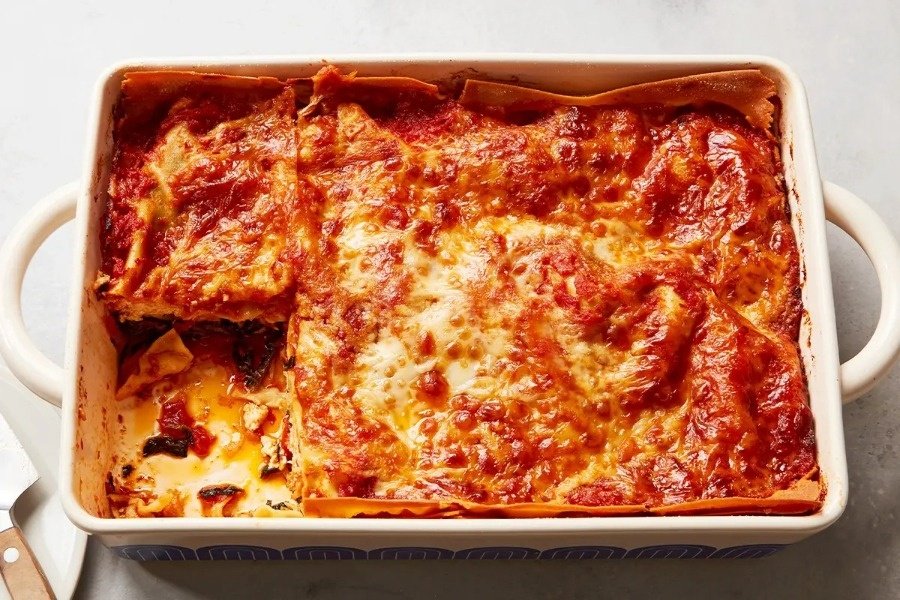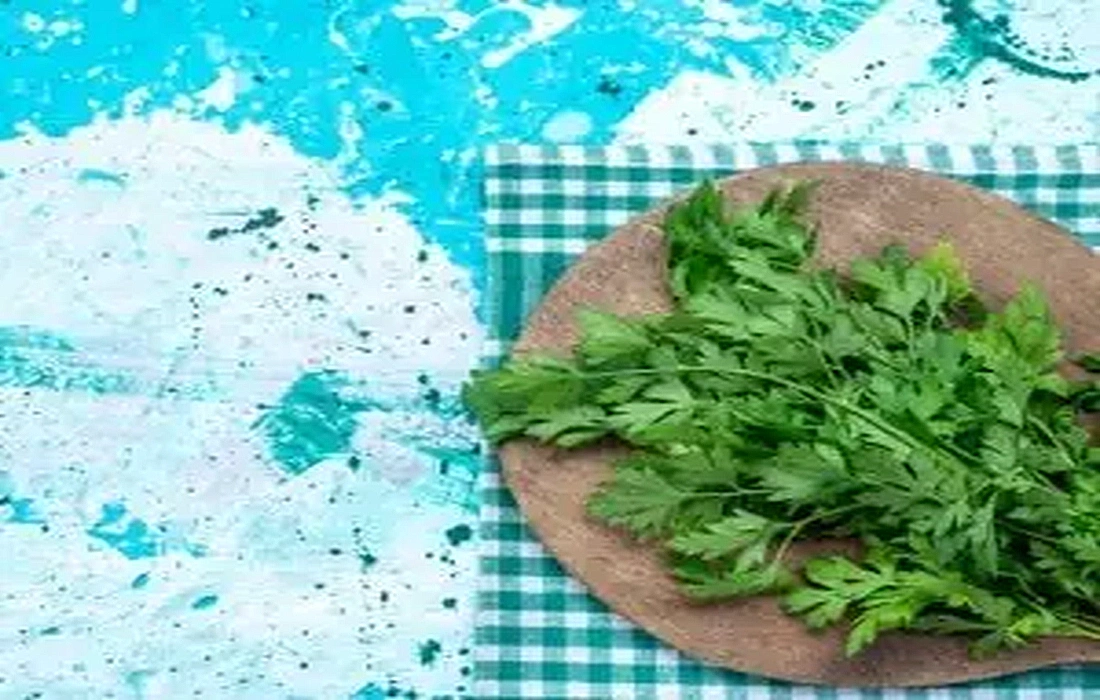Identification MethodSaffronGenuine vs. Fake
Saffron, known as red gold, is one of the most valuable and expensive spices used in various desserts, dishes, and beverages. Unfortunately, some fraudulent individuals sell dyed corn silk, coconut fibers, and saffron roots as genuine saffron.CoconutThey color saffron roots and sell them instead of real saffron. The wayto identify genuine saffronfrom fake is not easy, but you can use the methods we’ve provided in this section ofSelMagzto distinguish genuine saffron from the fake type.
Identifying Genuine Saffron with Baking Soda
Another characteristic of fake saffron is that if you mix it with a littlebaking sodaand water, its color will turn dark red, whereas genuine saffron will have a yellow tint. This means that if the saffron is genuine, the mixture will appear yellow; if it is fake, it will turn red.
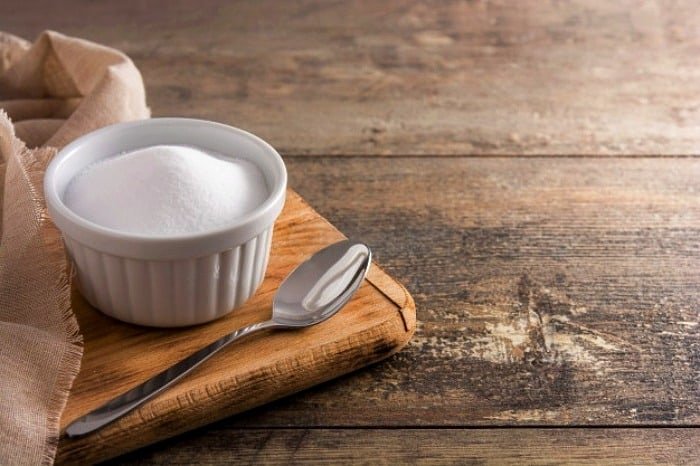
Color Difference Between Genuine and Fake Saffron
To distinguish genuine saffron from the fake type, rub the saffron strands between two wet fingers; if it’s genuine, your fingers will take on an orange or yellow color.
Identifying Genuine Saffron with Boiling Water
To check if the saffron you bought is real, you can dip it in boiling water and wait 5 minutes. If the strands remain red, your saffron is real; if they turn white, it is fake.
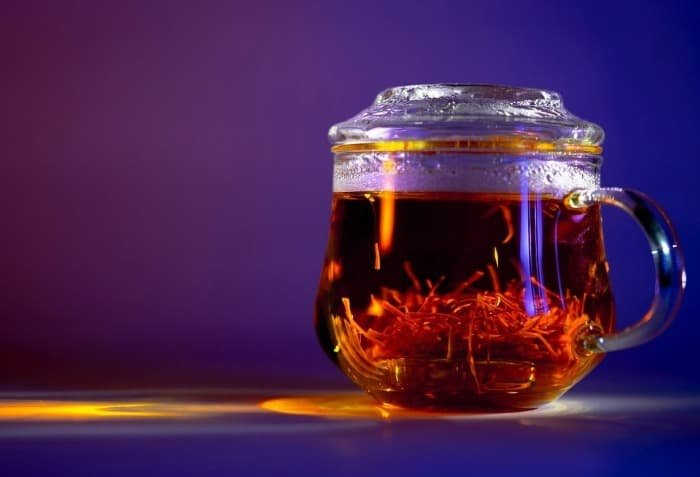
Identifying Genuine Saffron with Paper
To tell genuine saffron from the fake type, press saffron between two sheets of paper. If the paper becomes greasy, the saffron is fake.
Identifying Genuine Saffron with Flame Heat
If you want to identify genuine saffron from fake, hold a few strands over a gas flame. If the color turns yellow, it’s fake, but if it turns purple or orange, your saffron is real.
Identifying Genuine Saffron with Cold Water
To determine if saffron is genuine, place a few strands in cold water. Fake saffron quickly colors the water, while real saffron leaves a slow golden trace. Genuine saffron is almost yellowish-orange and clear, and never red.
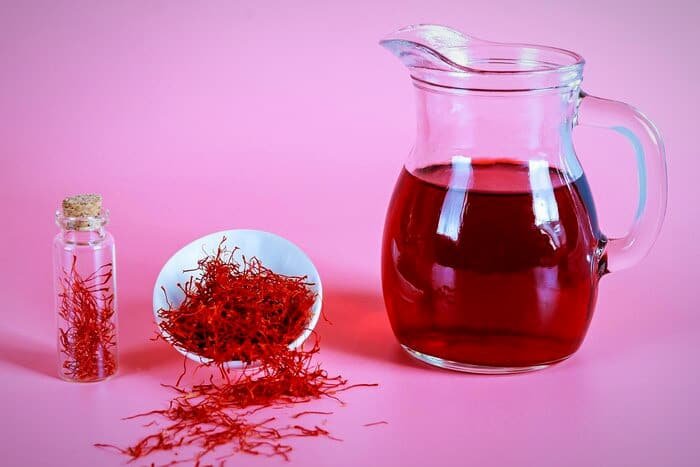
Identifying Genuine Saffron with Gasoline and Diesel
If you want to tell genuine saffron apart from fake, dip the strands in gasoline and diesel. Real saffron will never release its color in gasoline or diesel.
Consider the Aroma of Saffron
Genuine saffron has a sweet aroma; the sweeter and stronger the scent, the fresher the product and the higher the quality. Many people believe that the scent of saffron is a combination of honey andhayandclover.
Notice the Bitterness of Saffron
Genuine saffron has a bitter taste; if you taste bitterness immediately, you can be sure of its authenticity. If you find saffron sweet, you can be certain it is fake. But if you taste bitterness right away, you can trust that it’s genuine.
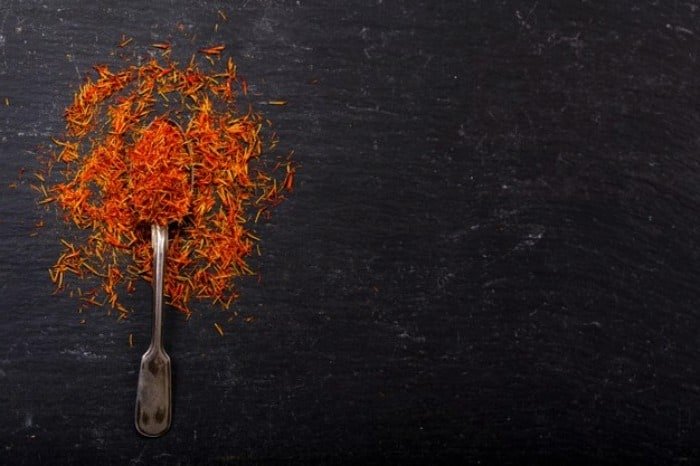
Check the Color and Shape of the Stigma
To identify real saffron, pay attention to the color and curvature or straightness of the stigma. Genuine saffron stigma is not shiny and has a bent shape. Its form resembles a trumpet, one end is thin and the other end looks trumpet-like and is branched.
Consider the Weight of Saffron
Fake saffron strands are heavier than real ones. To identify genuine saffron, place some strands in water; if they float, your saffron is genuine; if they sink, it is fake.
Check the Speed of Color Release
Genuine saffron takes at least 15 to 20 minutes to fully color the water, but fake saffron colors it quickly.
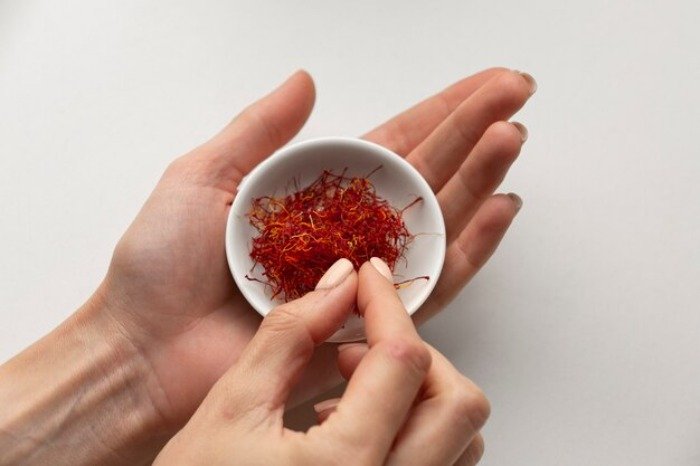
Look at the Appearance of the Stigma
To distinguish genuine saffron from fake, put a few strands in water, and after coloring, take them out. The color of genuine saffron will not change, and its appearance won’t alter much, but the color of fake saffron will turn completely white and lose its previous appearance.
Grind the Saffron
To identify genuine saffron from fake, soak a few strands in water, then remove them after coloring and rub them between your fingers. Genuine saffron strands will not separate, but fake saffron will easily break down and disappear.



